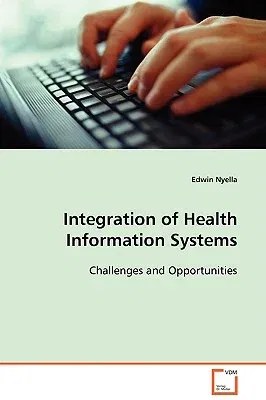Edwin Nyella
(Author)Integration of Health Information SystemsPaperback, 1 December 2008

Qty
1
Turbo
Ships in 2 - 3 days
In Stock
Free Delivery
Cash on Delivery
15 Days
Free Returns
Secure Checkout
Print Length
156 pages
Language
English
Publisher
VDM Verlag
Date Published
1 Dec 2008
ISBN-10
3639066170
ISBN-13
9783639066173
Description
Product Details
Author:
Book Format:
Paperback
Country of Origin:
US
Date Published:
1 December 2008
Dimensions:
22.86 x
15.24 x
0.84 cm
ISBN-10:
3639066170
ISBN-13:
9783639066173
Language:
English
Location:
Saarbrucken
Pages:
156
Publisher:
Weight:
217.72 gm

